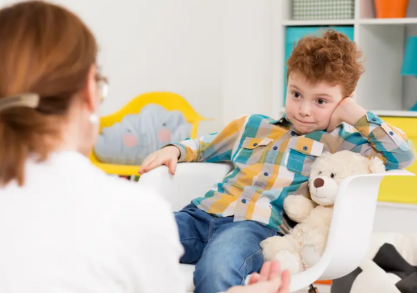
Bien-Être is a multidisciplinary, bilingual clinic that offers services for children diagnosed with the Autism Spectrum Disorder (ASD) as well as those presenting neurodevelopmental difficulties:
- Receptive and expressive language difficulties
- Difficulties related to phonology and communication
- Handwriting and fine motors
- Difficulties related to disruptive and oppositional behaviors
- Challenges to one’s autonomy
- Learning difficulties
These services will be offered according to the principles of Applied Behavioral Analysis (ABA).
Applied Behavior Analysis (ABA) is the scientific study of learning and behavior. It is the process of systematically applying interventions, based upon the principles of learning theory, to improve socially significant behaviors and enhance learning techniques. Research shows that children with Autism Spectrum Disorder (ASD) or developmental delays have a hard time learning from their everyday environment. The ABA approach therefore focuses on simplified instructional steps paired with consistent reinforcement to teach and provide children with tools to better understand their environmental surrounding. ABA therapy is helpful in teaching social, motor and verbal behaviors as well as reasoning skills that children with ASD do not systematically “pick up” on their own. It requires careful behavioral observations to determine the child’s strengths and weaknesses followed by a prompt to teach behaviors and/or tasks.
A child who performs a task correctly and engages in desirable behaviors is reinforced with a valued reward. The intensity of the reward is proportional to the level of difficulty of the task achieved. ABA is based on the principle of errorless teaching and aversive techniques (i.e. punishments, time out) are not part of the therapy. When the child engages in undesirable behaviors, these behaviors are ignored, and the child is reinforced only when the task at hand is performed successfully and unsuitable behaviors are withdrawn. A careful study of the triggers of the behavior is conducted and physical, vocal and environmental reinforcers are used to withdraw these triggers.
There is empirical evidence showing that ABA therapy is the most effective evidence-based therapeutic approach for children with ASD and development delays with its main goal being to aid children lead more independent and socially active lives with positive outcomes shown especially when early interventions are provided to the child. ABA therapy leads to significant improvements in language and communication skills, enhances attention and cognitive performance, promotes adaptive behaviors and decreases problematic behaviors to enhance the quality of life of children with ASD and developmental delays. The ABA approach can be applied by a board-certificate behavior analyst (BCBA) however it is possible and recommended for parents, teachers and members of the child’s social circle to obtain ABA certification to use this therapy.
ABA therapy is the most effective evidence-based therapeutic approach for children with ASD and development delays with its main goal being to aid children lead more independent and socially active lives with positive outcomes shown especially when early interventions are provided to the child.
ABA therapy leads to significant improvements in language and communication skills, enhances attention and cognitive performance, promotes adaptive behaviors and decreases problematic behaviors to enhance the quality of life of children with ASD and developmental delays.
ABA approach can be applied by a board-certificate behavior analyst (BCBA) however it is possible and recommended for parents, teachers and members of the child’s social circle to obtain ABA certification to use this therapy.